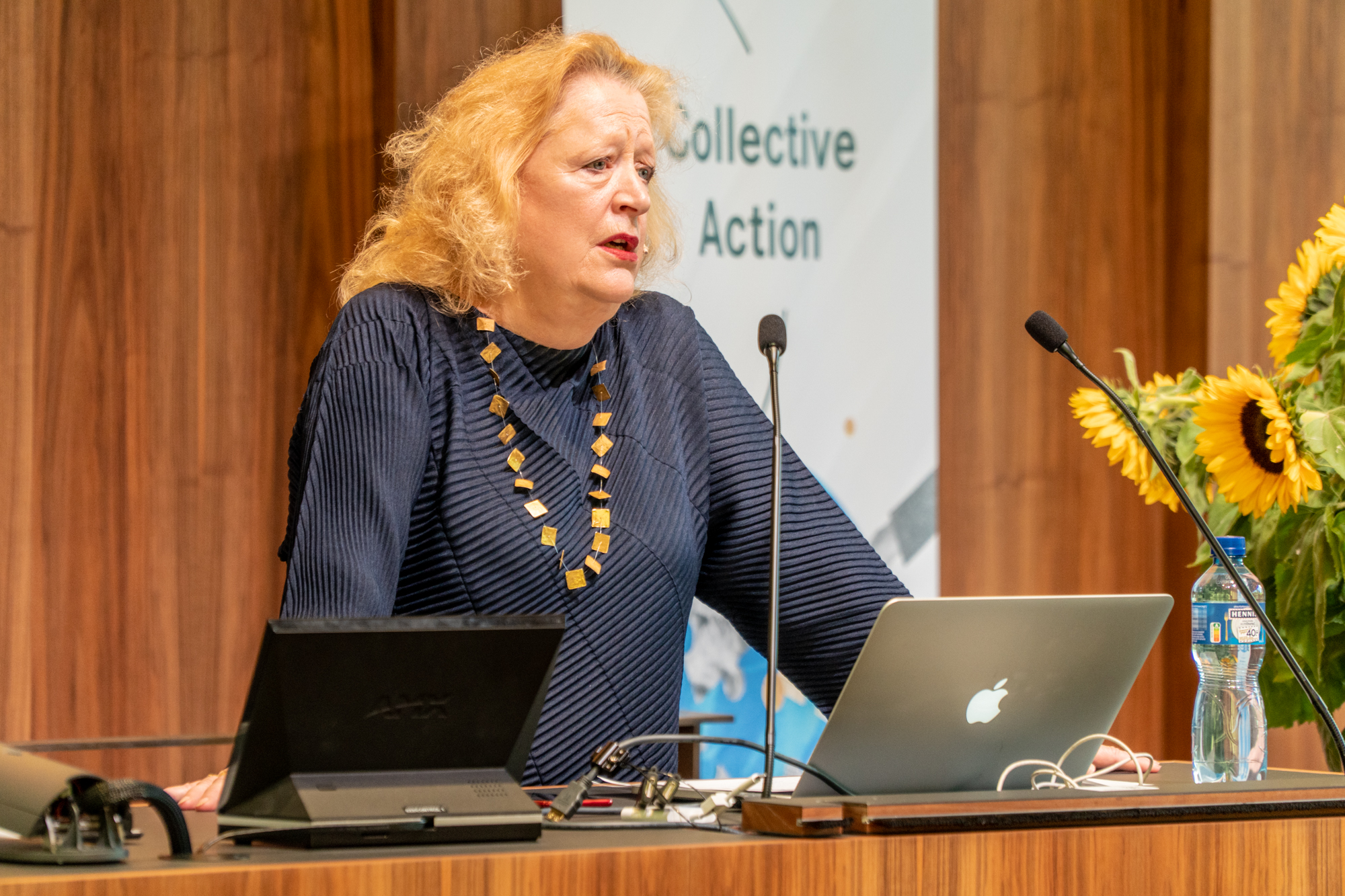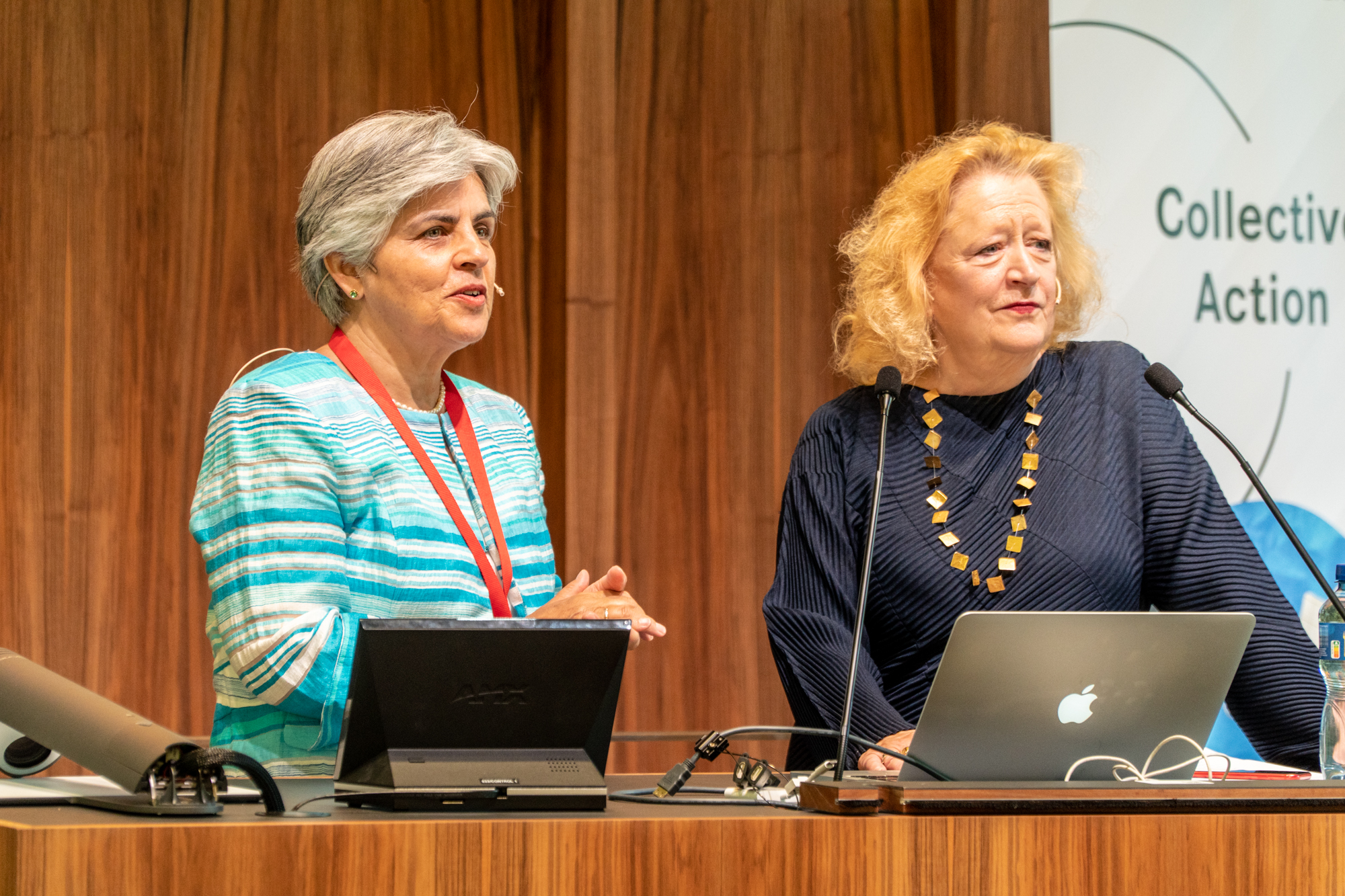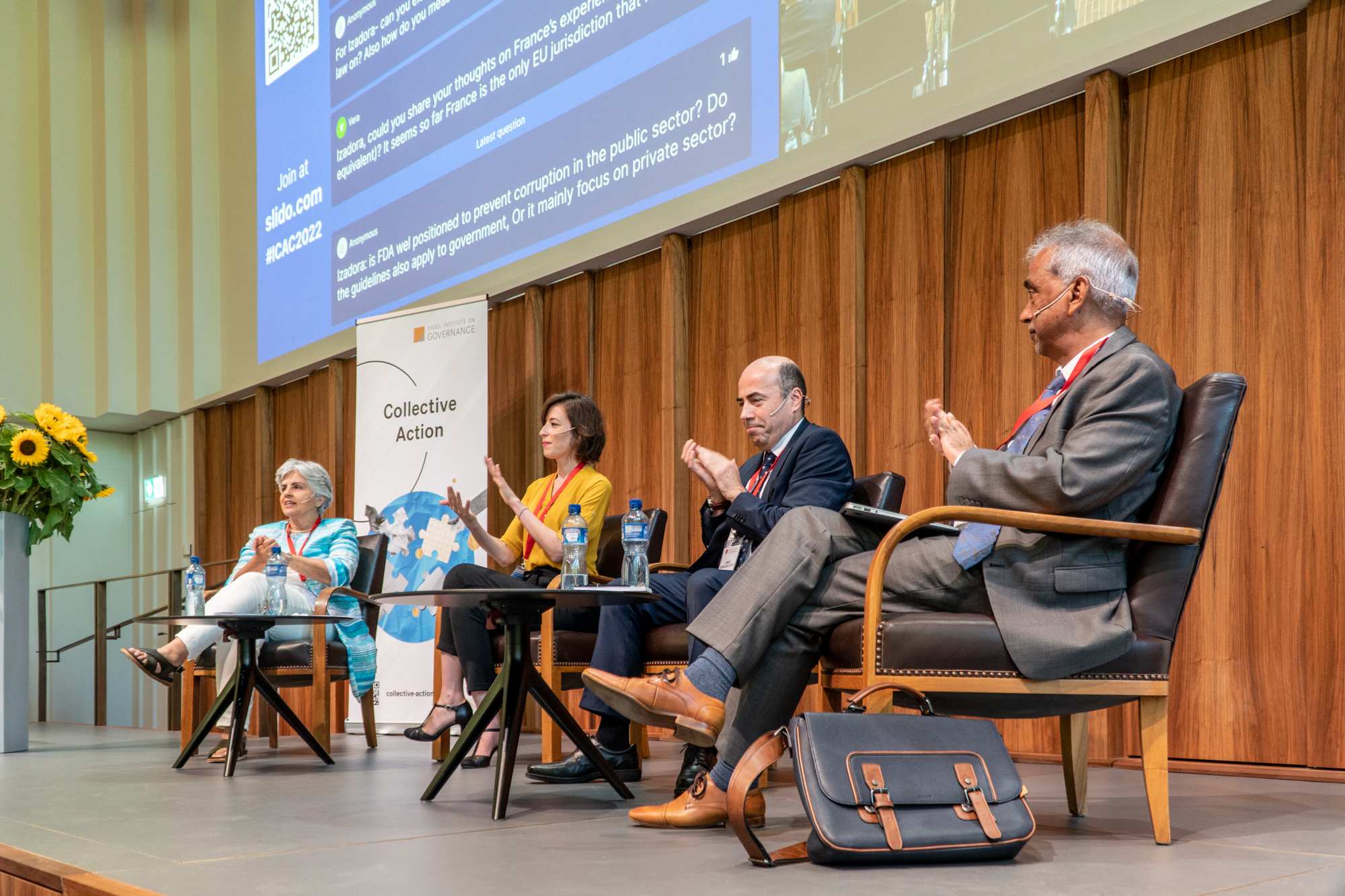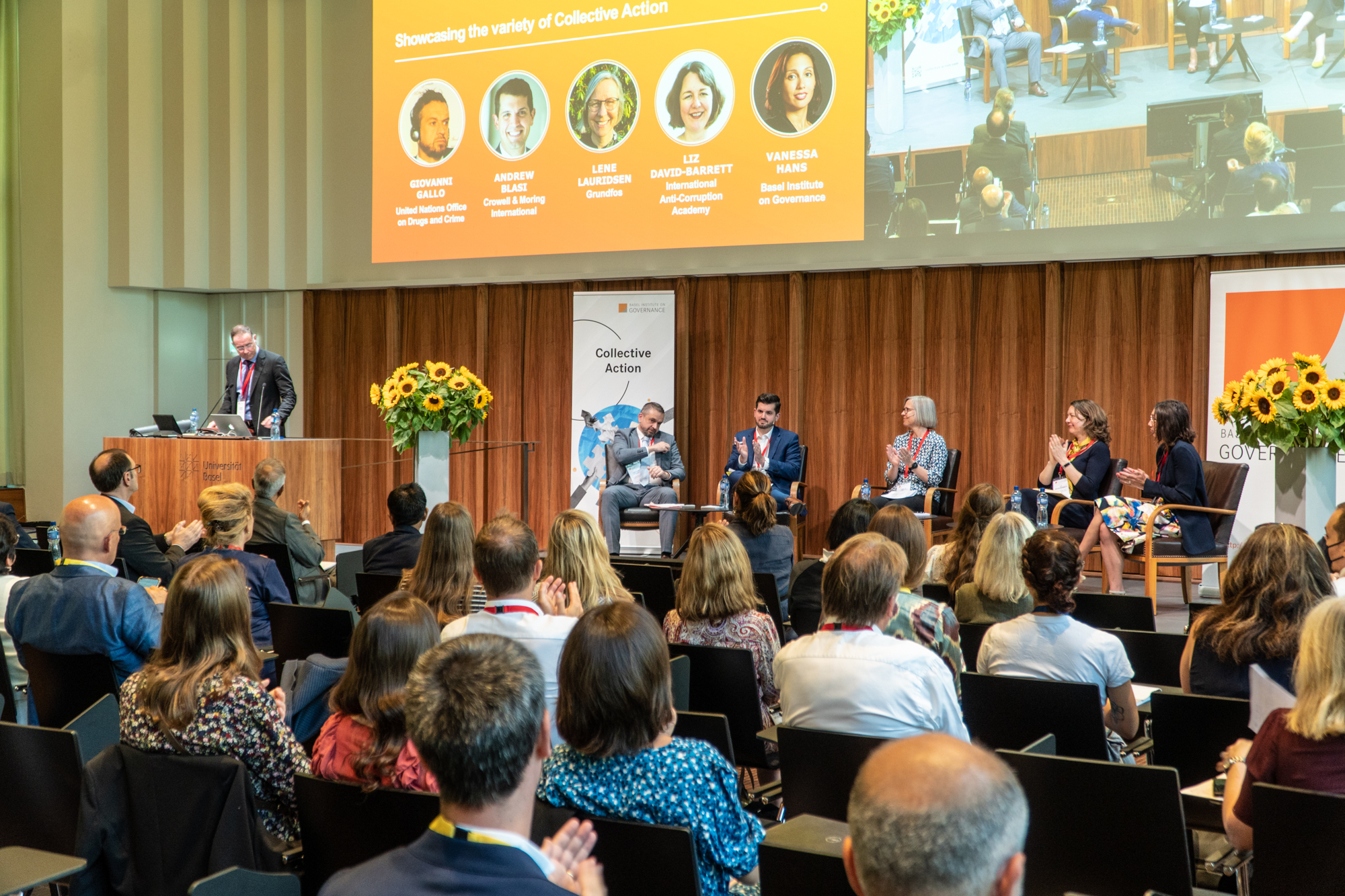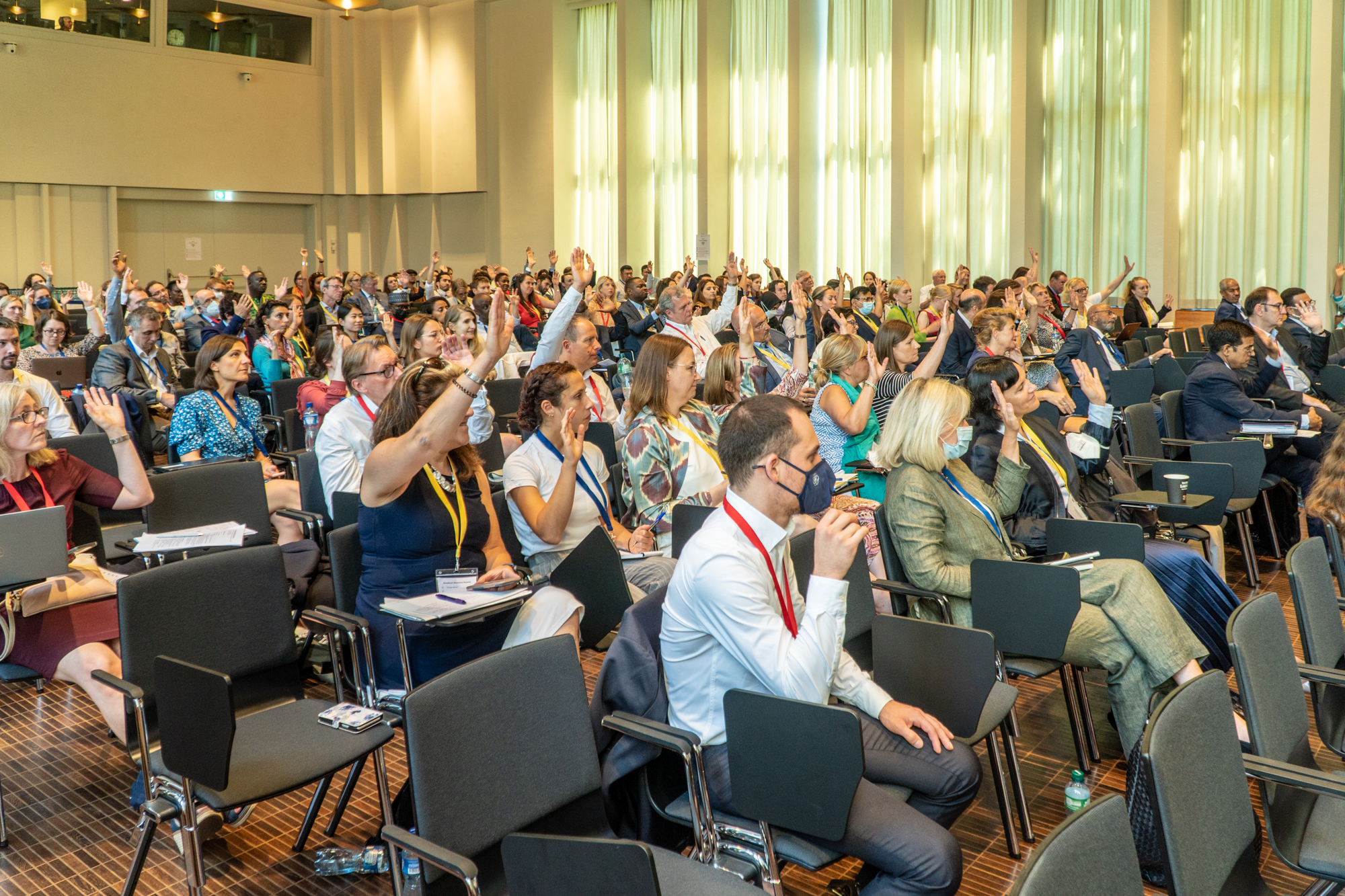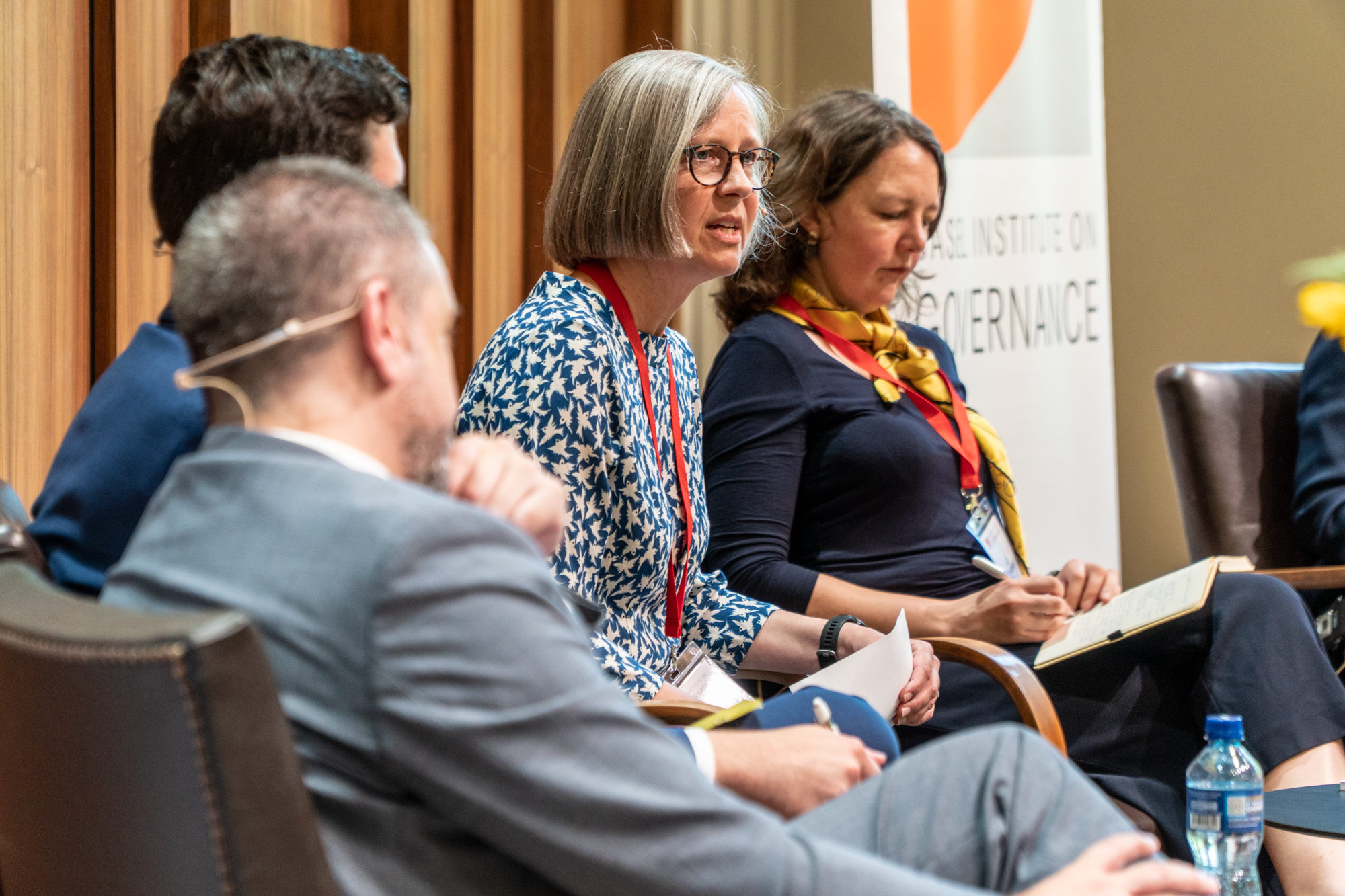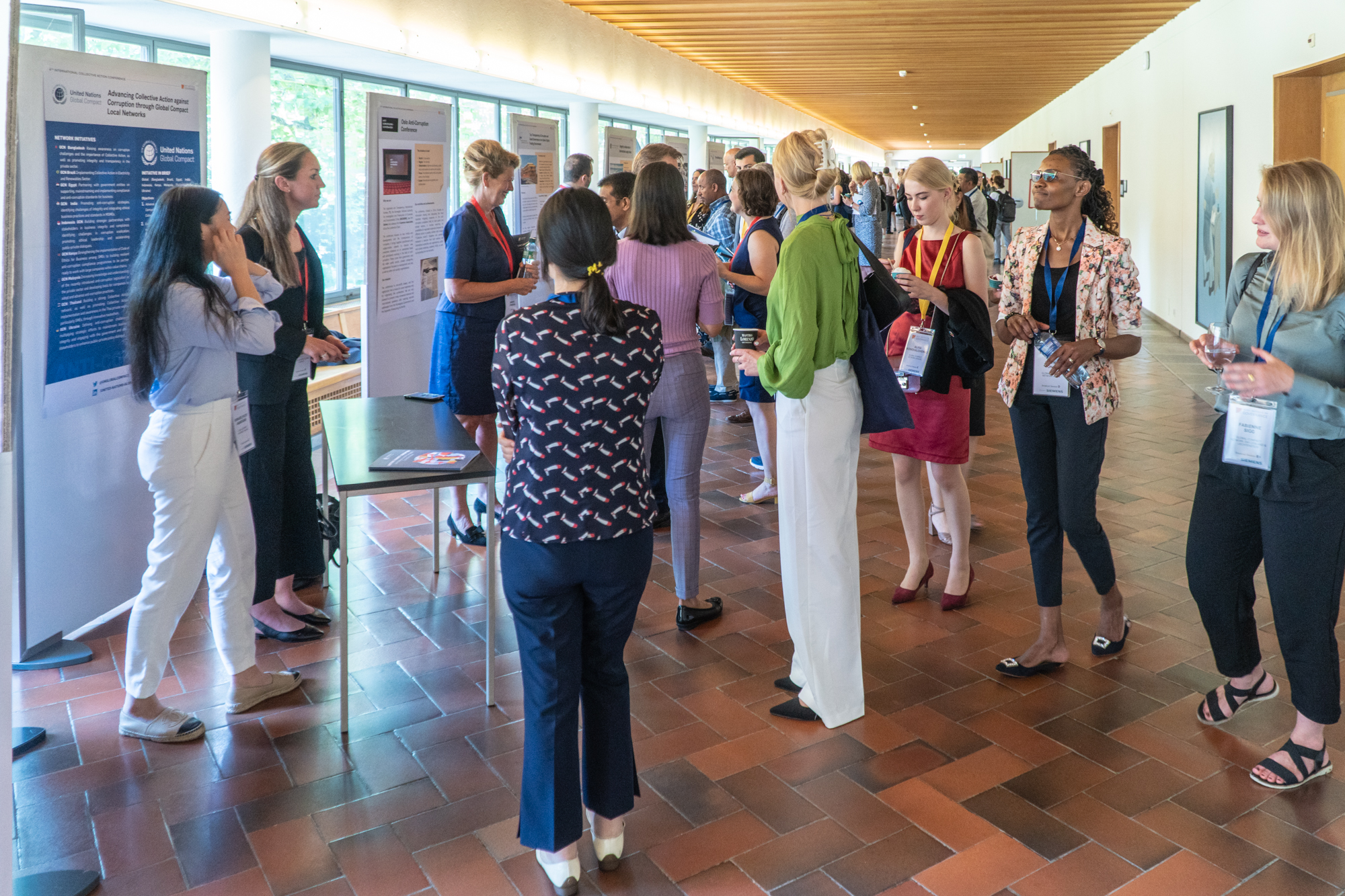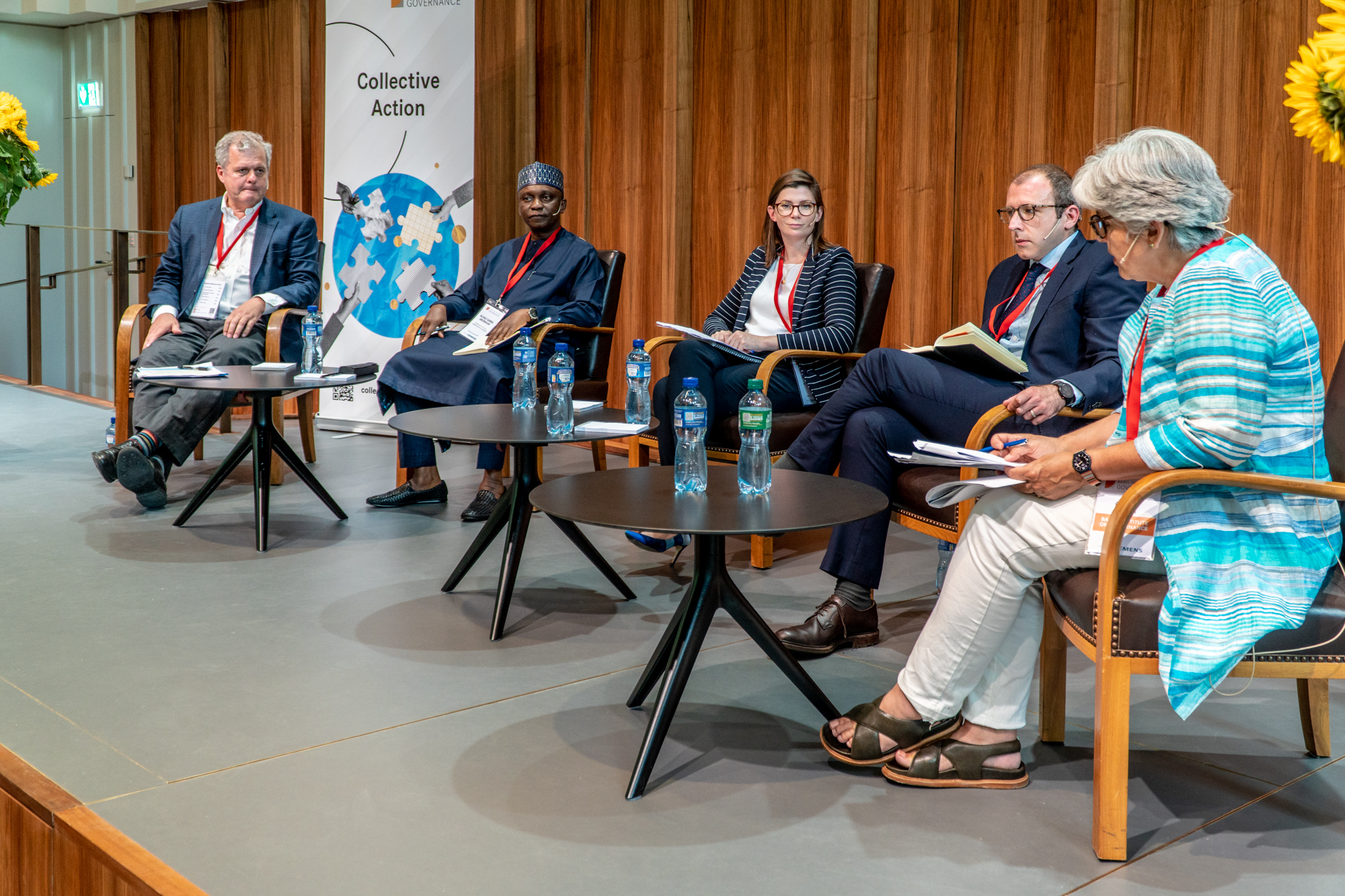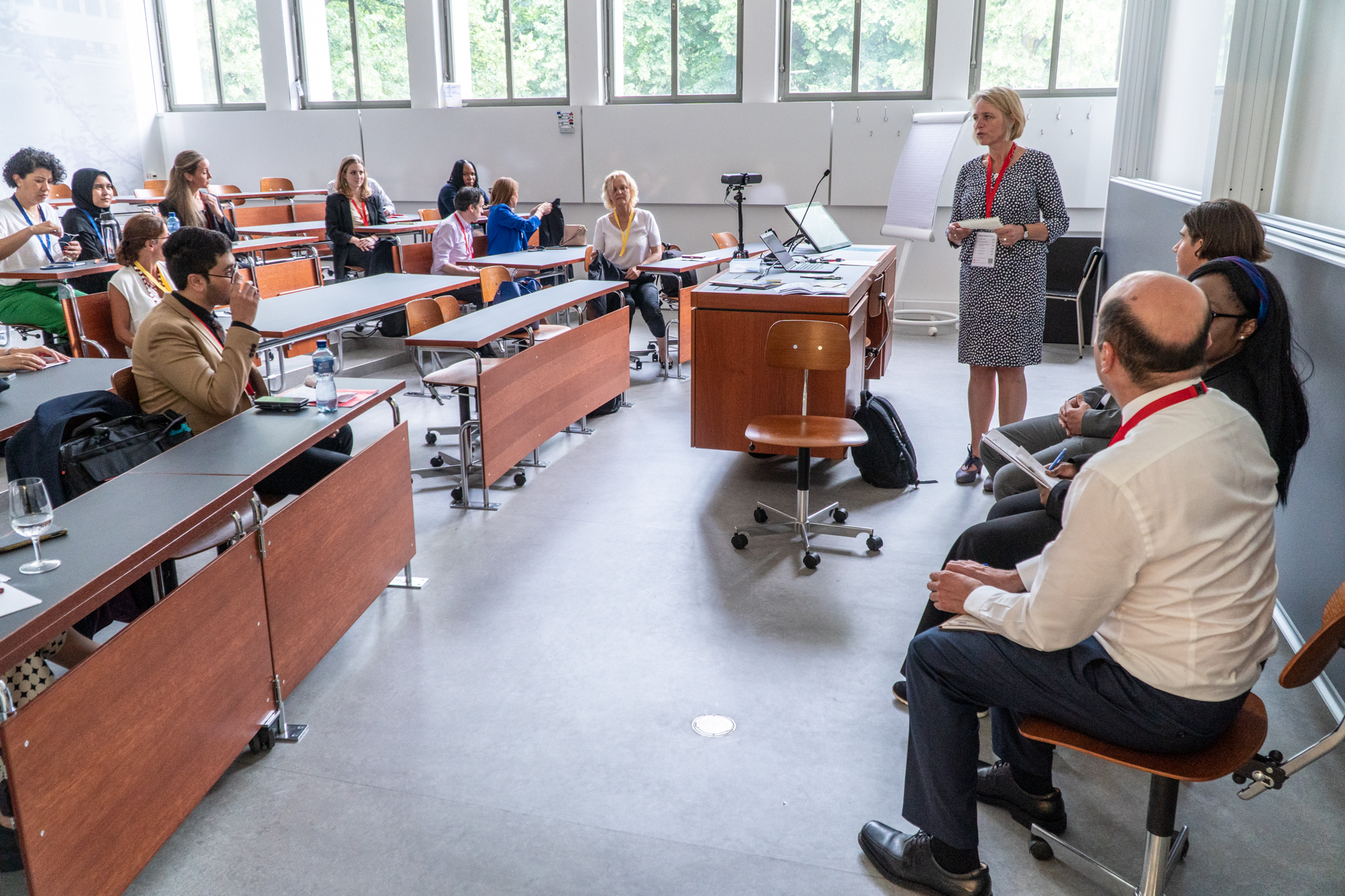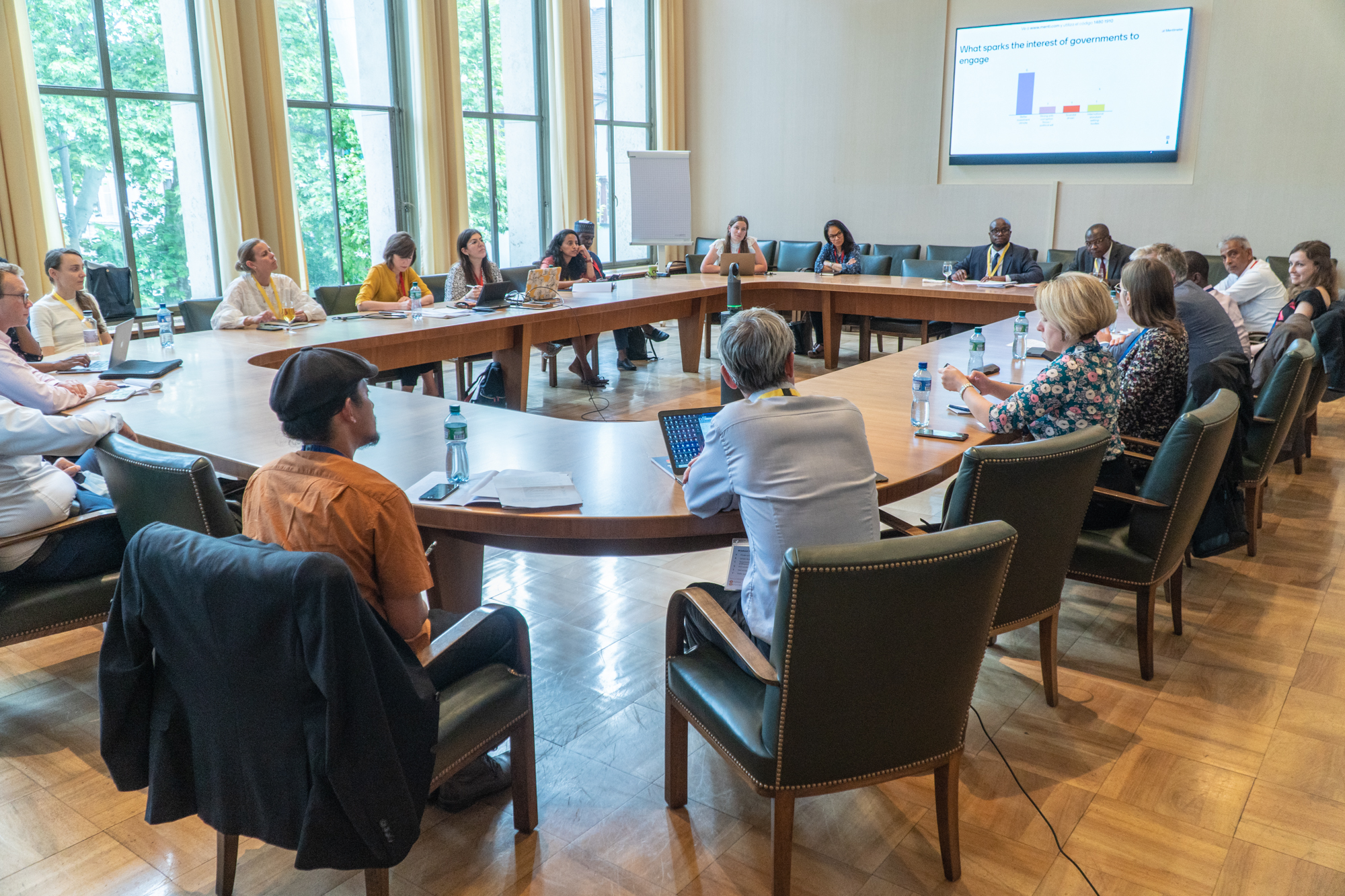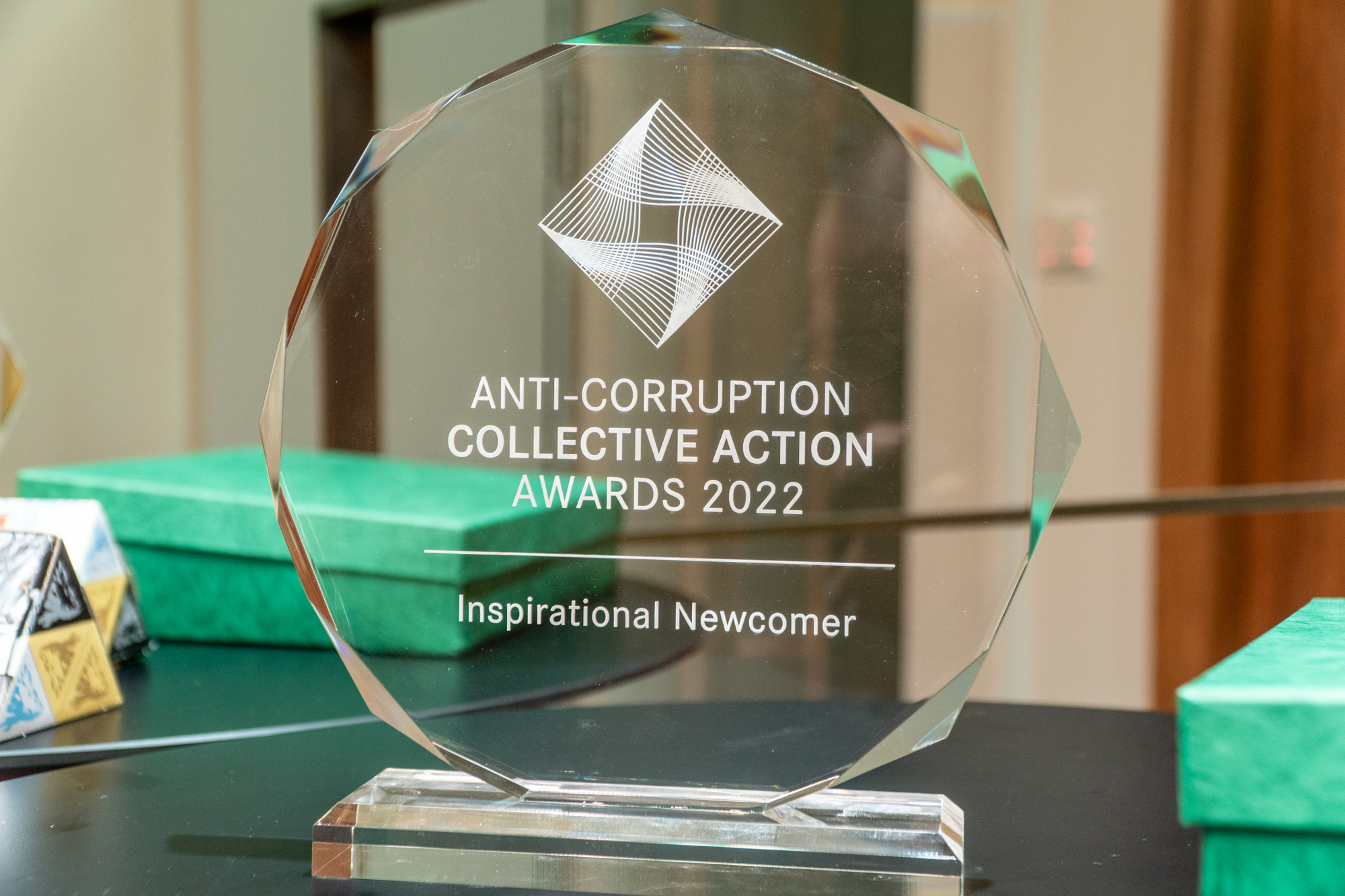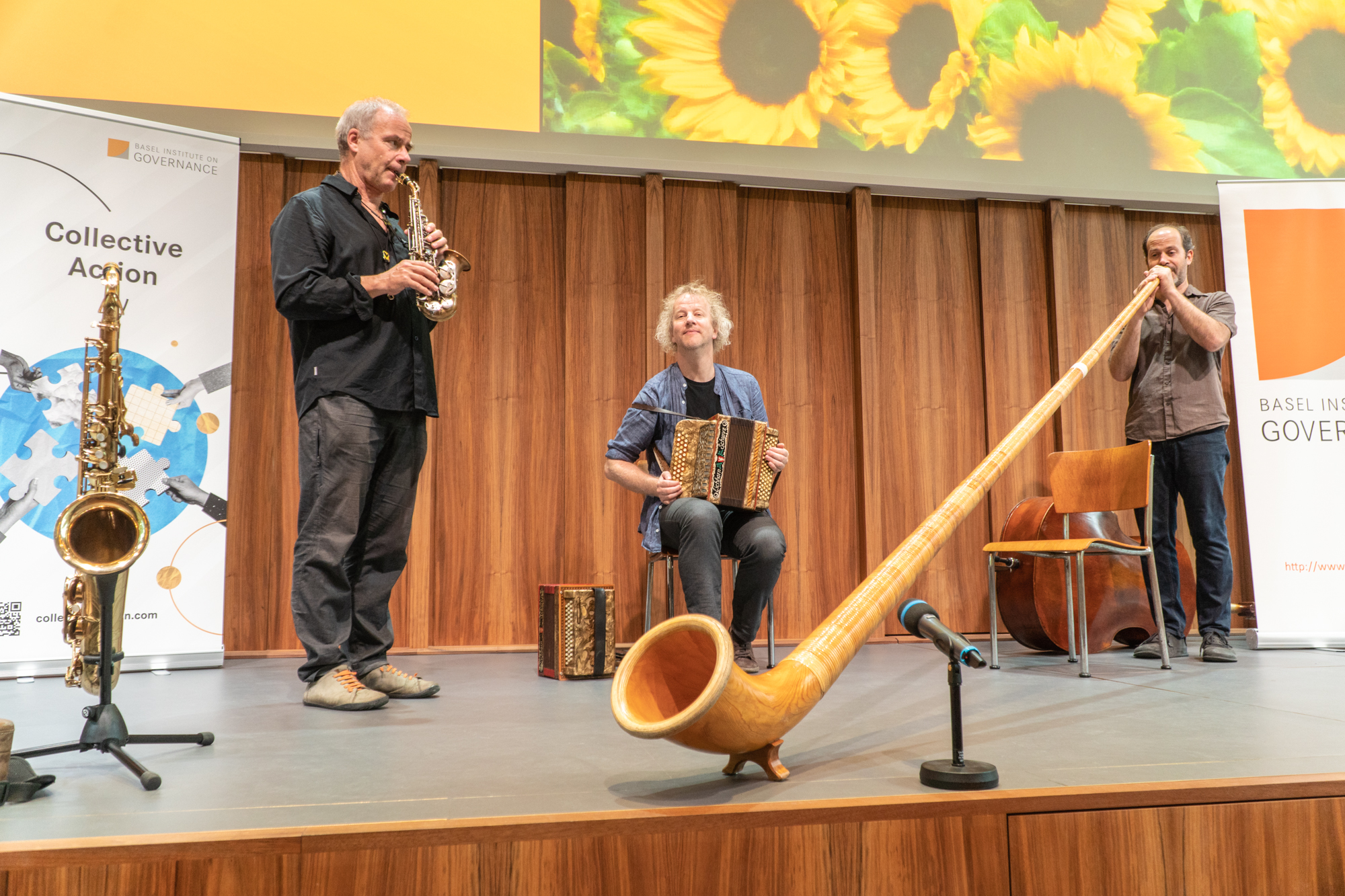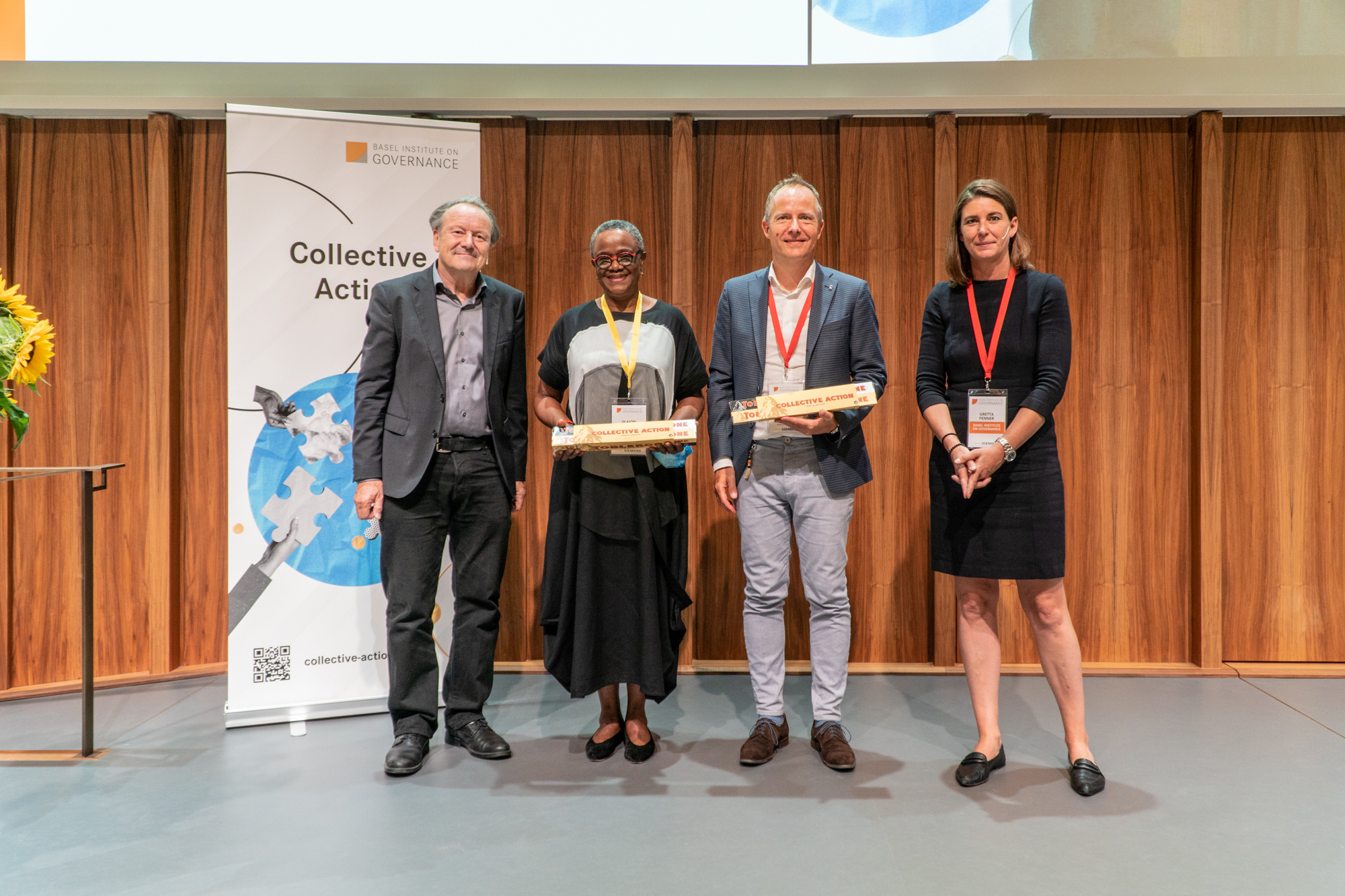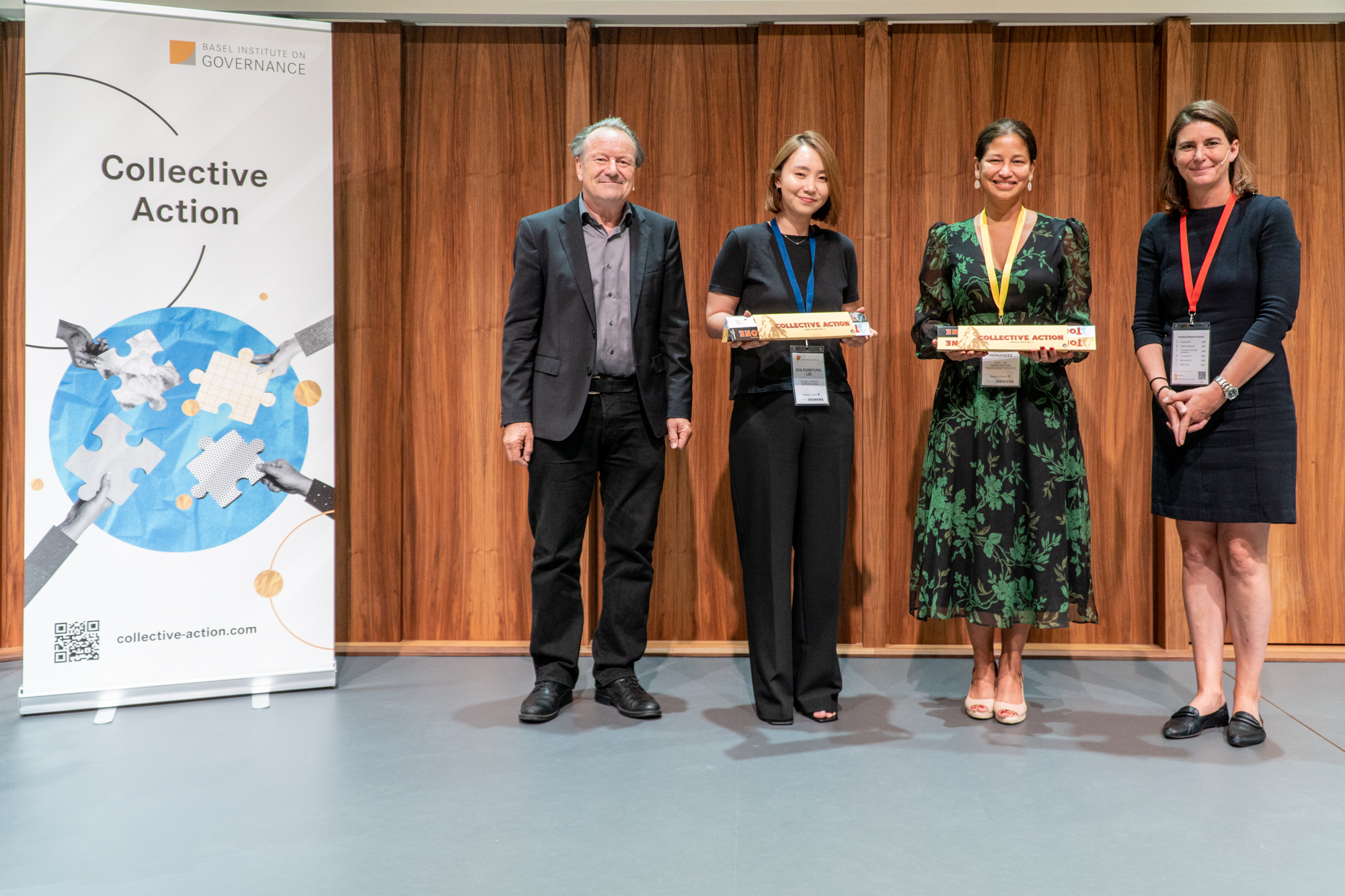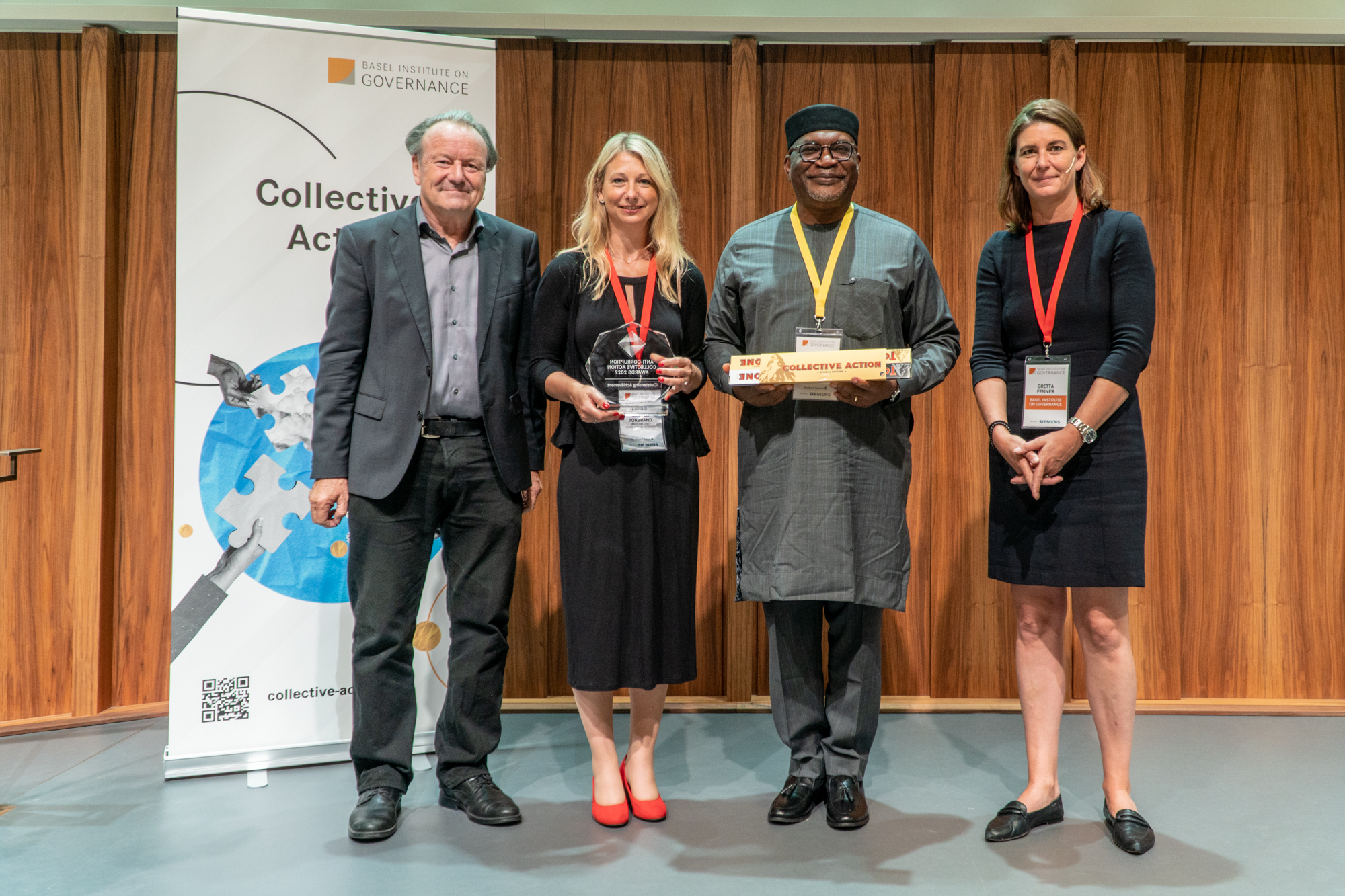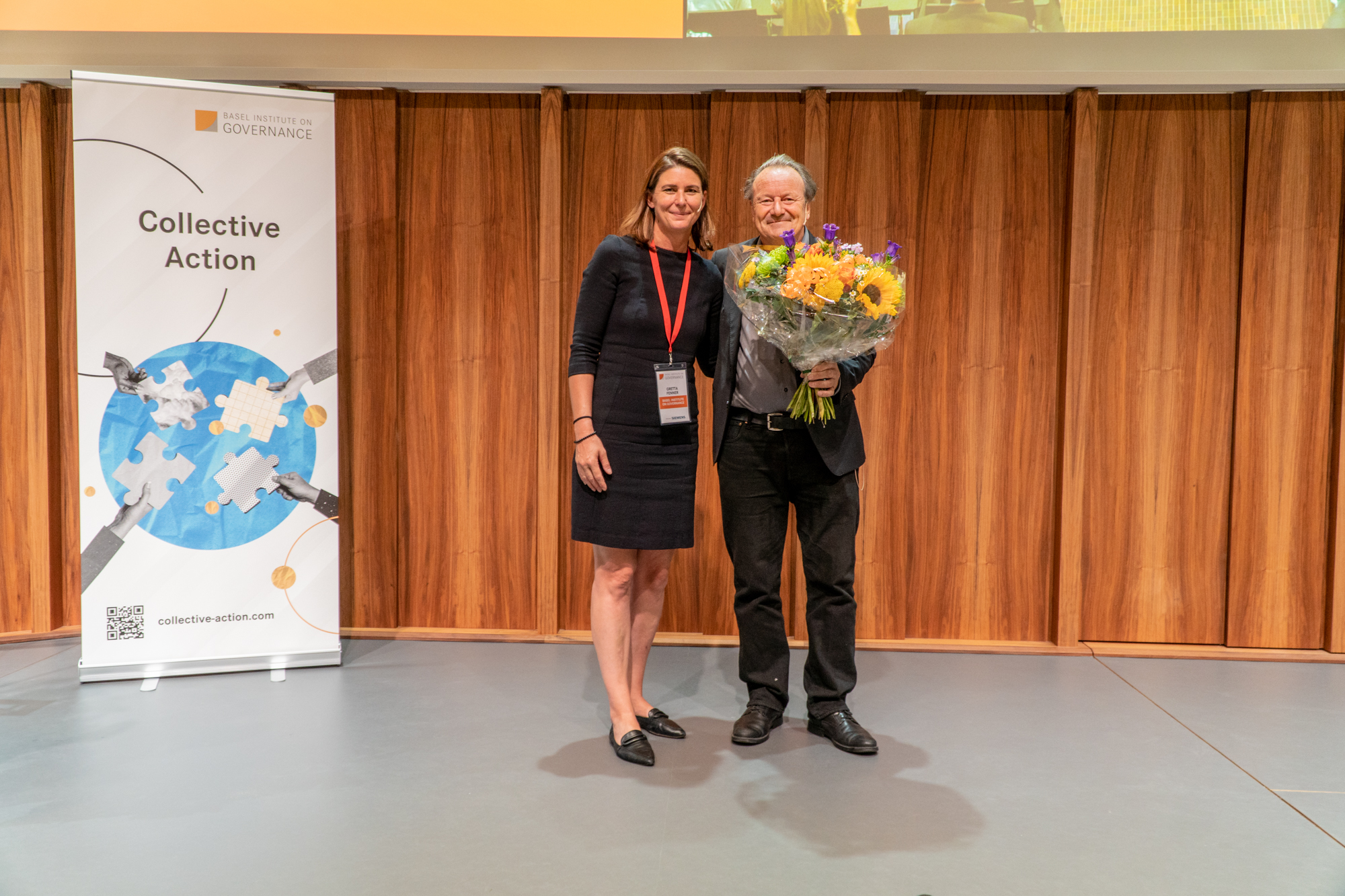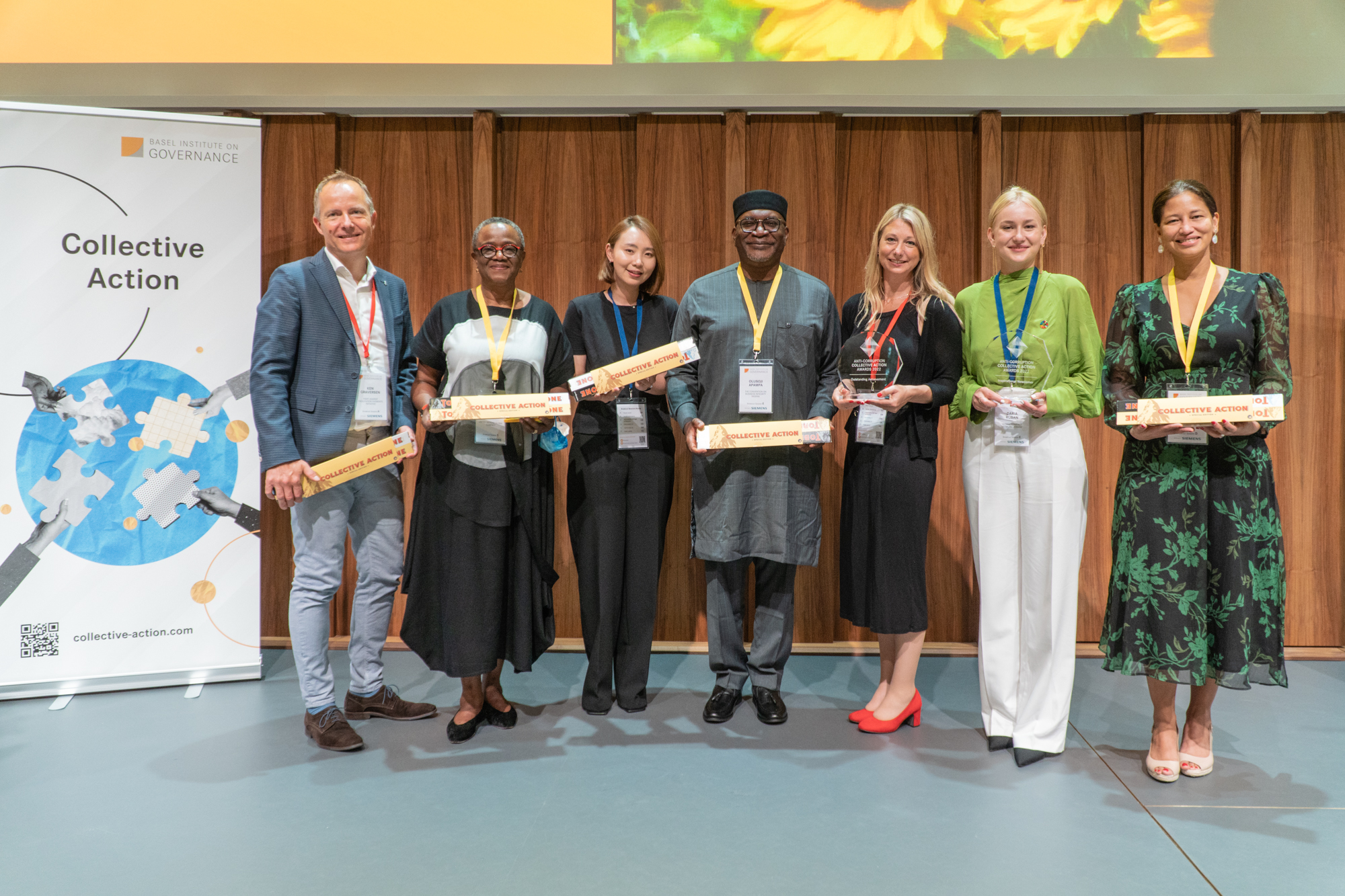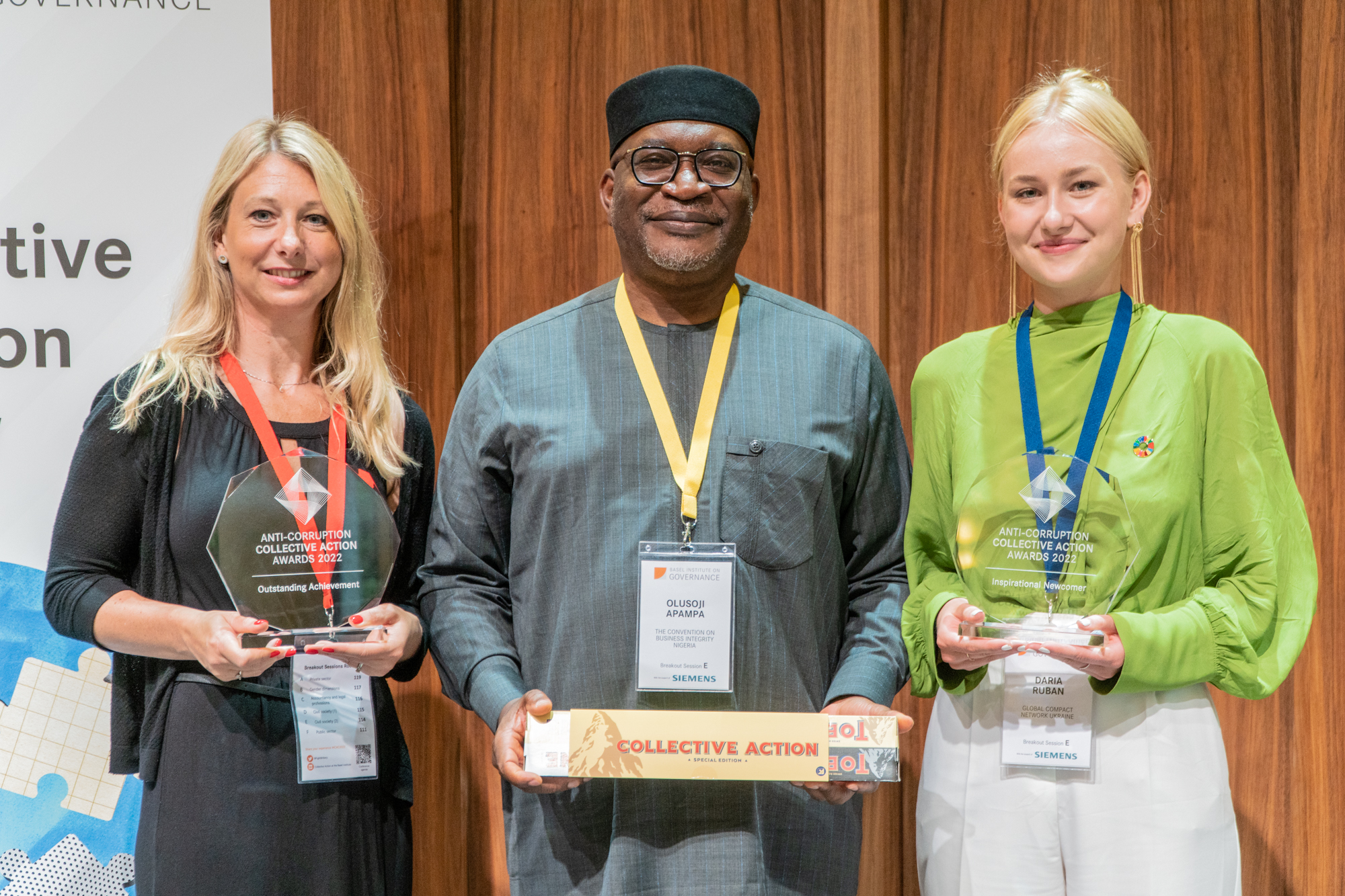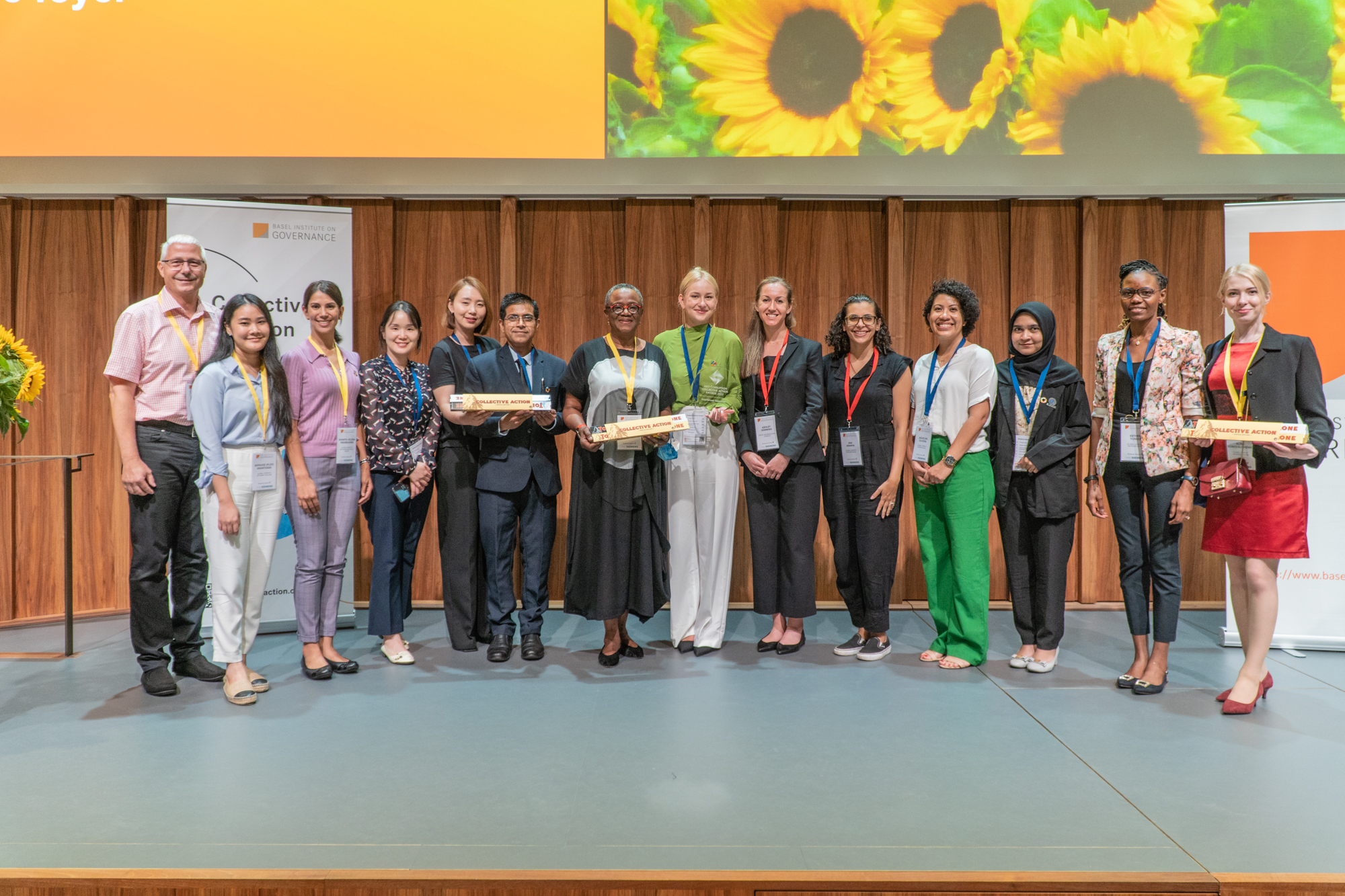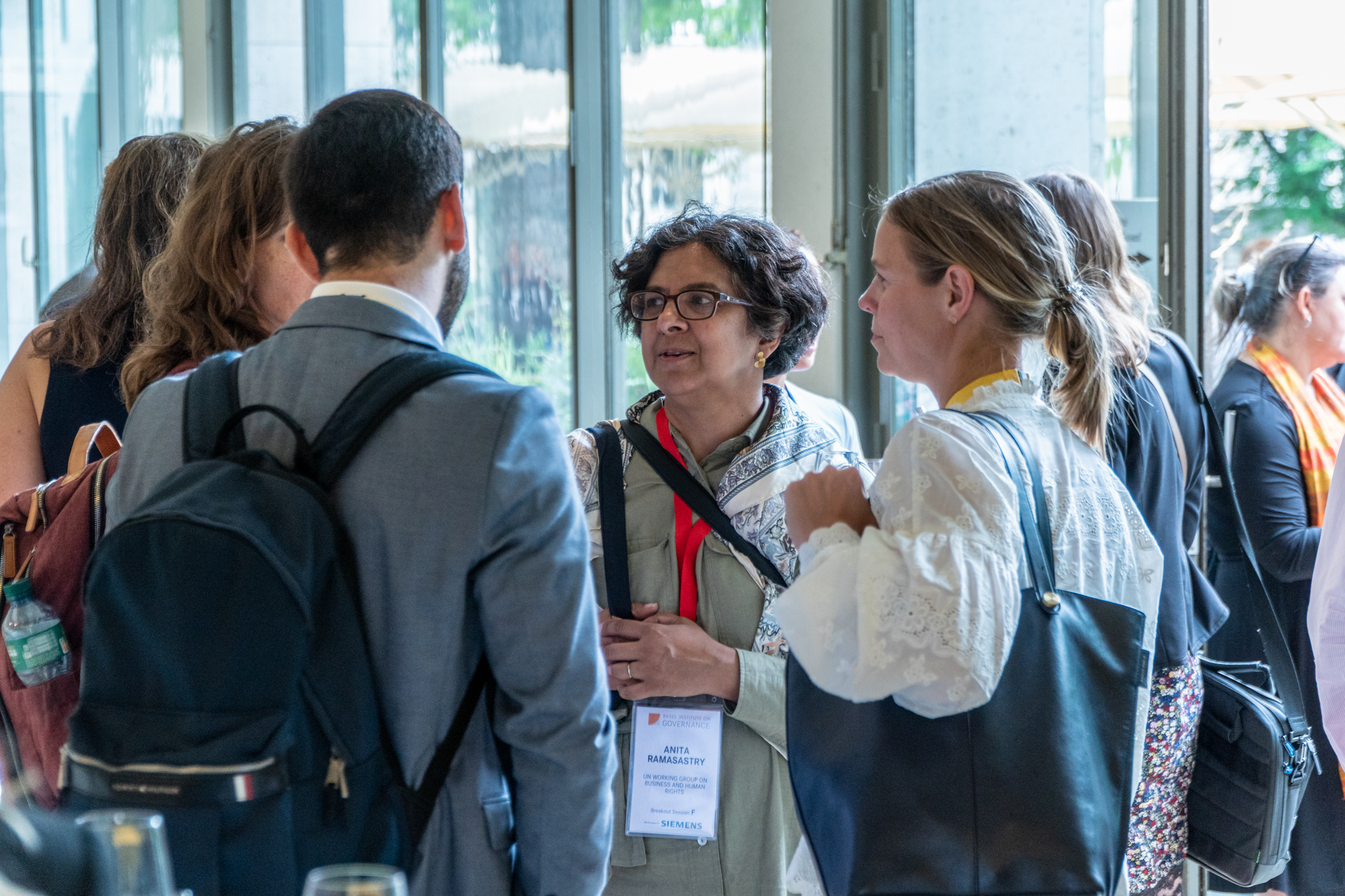Collective Action Conference and Awards: multi-stakeholder approaches to corruption enter the mainstream
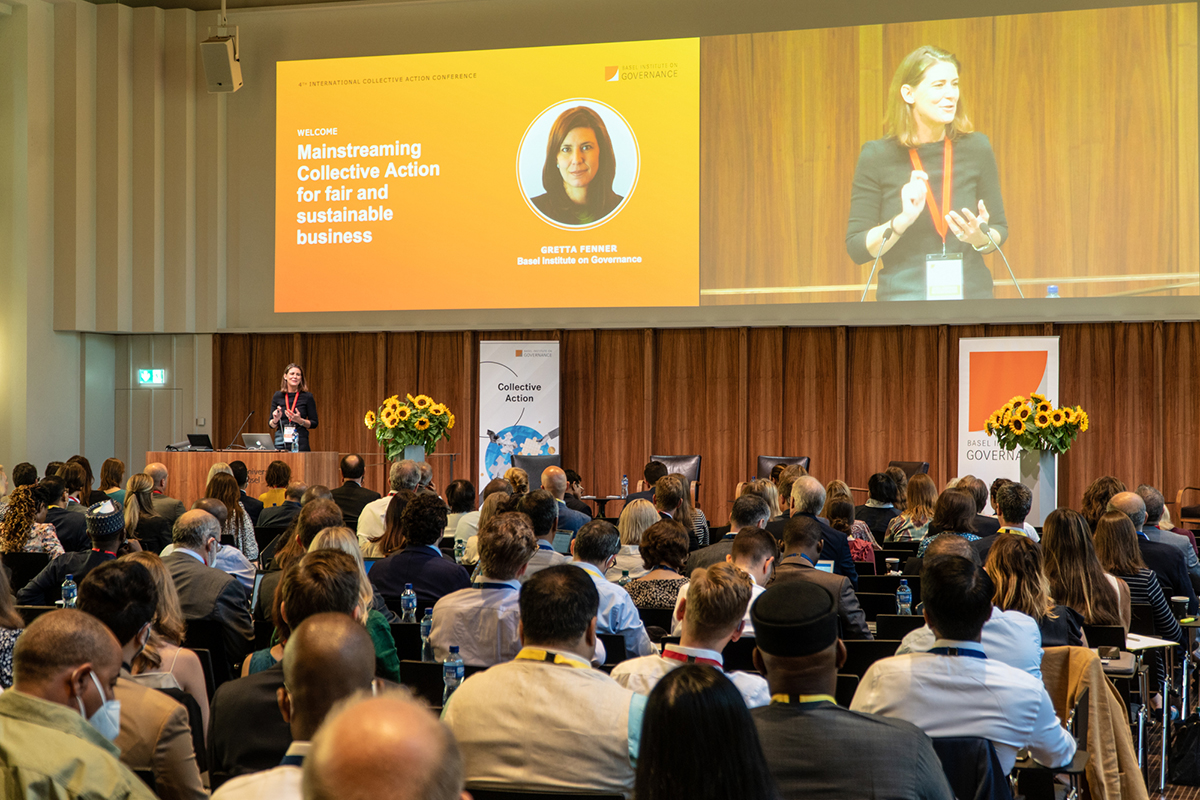
Over 200 leading anti-corruption professionals from the public and private sectors, civil society and academia came together at the 4th International Collective Action Conference on 30 June and 1 July 2022.
Their goal: to reach across silos and add momentum to the growing global recognition that Collective Action needs to be a central element of corruption prevention.
The Basel Institute on Governance hosted the conference with the support of the Siemens Integrity Initiative. The theme – How to mainstream Collective Action to achieve a clean, fair and sustainable business environment for all – reflects our joint efforts over the last years to support anti-corruption practitioners from all sectors and stakeholder groups seeking collective solutions to collective challenges of corruption and fair business.
In addition to the panel discussions, workshops, an exhibition and networking opportunities, this year’s conference featured an inaugural award ceremony recognising two outstanding and inspiring anti-corruption Collective Action initiatives in Nigeria and Ukraine.
Collective Action: becoming business as usual?
Collective Action approaches and tools have blossomed over recent years as governments, businesses and civil society recognise the benefits of working together to tackle corruption and enhance fair business conditions. The value of multi-stakeholder approaches is increasingly acknowledged in international standards such as the OECD’s revised 2021 Anti-Bribery Recommendation, which for the first time explicitly and formally recommends Collective Action as a tool to tackle corruption.
This “sea change” in approaches to business integrity was a common theme during the panel discussions. These brought together prominent government representatives, corporate compliance professionals and civil society or academic practitioners to share experiences on topics including:
- How governments can translate commitments to engage the private sector in preventing corruption into action;
- The variety of Collective Action – a topic exemplified by the wide range of sectors and organisations represented at the conference;
- New momentum for beneficial ownership transparency, such as in the high-risk extractives sector with the launch of the Opening Extractives initiative;
- Anti-corruption and business and human rights – exploring the role Collective Action could play in connecting corporate efforts to protect human rights and prevent corruption.
Sharing ideas, exchanging expectations
In-depth focus discussions within stakeholder groups – business, government, civil society – were a highlight for many participants. As pioneers in anti-corruption Collective Action, they shared ideas about what value their stakeholder group brings to Collective Action and what they expect from others. They also exchanged experiences overcoming common challenges relating to building trust, monitoring impact, securing political will and managing differing expectations and needs between stakeholder groups.
The results, presented the following day in a panel on “joining forces to mainstream Collective Action”, will help steer efforts to further promote Collective Action as accepted best practice for countering systemic corruption. Their findings will inform a forthcoming post-conference report (watch this space) and build on experiences shared at other practitioner-focused events hosted by the Basel Institute’s Collective Action team.
Showcasing the success and power of Collective Action
Inaugurated this year and presented at a ceremony on day one of the conference, the Collective Action Awards celebrate anti-corruption initiatives that bring together stakeholders from across the private and public sectors and civil society.
This year’s winners in the two categories are:
- Outstanding Achievement: The Maritime Anti-Corruption Network’s Collective Action initiative in Nigeria, in collaboration with the Convention on Business Integrity
- Inspirational Newcomer: Global Compact Network Ukraine Collective Action Initiative
A warm congratulations to the winners, to the other shortlisted candidates (Business Integrity Society Korea, CoST - the Infrastructure Transparency Initiative, the Bribery Prevention Network and the Fight Against Facilitation Payments Initiative), to the 37 nominated candidates in total and to all 1,260+ individuals who voted for the initiatives during the public vote.
A big thank you to the Siemens Integrity Initiative for supporting the Conference and Awards, to Margaret Heffernan for the inspiring keynote address, and to all participants, speakers, exhibitioners, facilitators and volunteers who have helped to make this event so memorable.
More
- View selected videos from the conference, including the awards ceremony on this YouTube playlist.
- A selection of photos from the conference are below. You are free to use and share the photos, but please credit: Basel Institute on Governance; photo by David Borter, LEO MEDIA.
- To receive updates about this and future events, including next year’s conference and awards, please sign up to our conference mailing list and follow our Collective Action team on LinkedIn and Twitter.
- Learn more about Collective Action and how to get engaged on the B20 Collective Action Hub – our free global resource centre on anti-corruption Collective Action.

